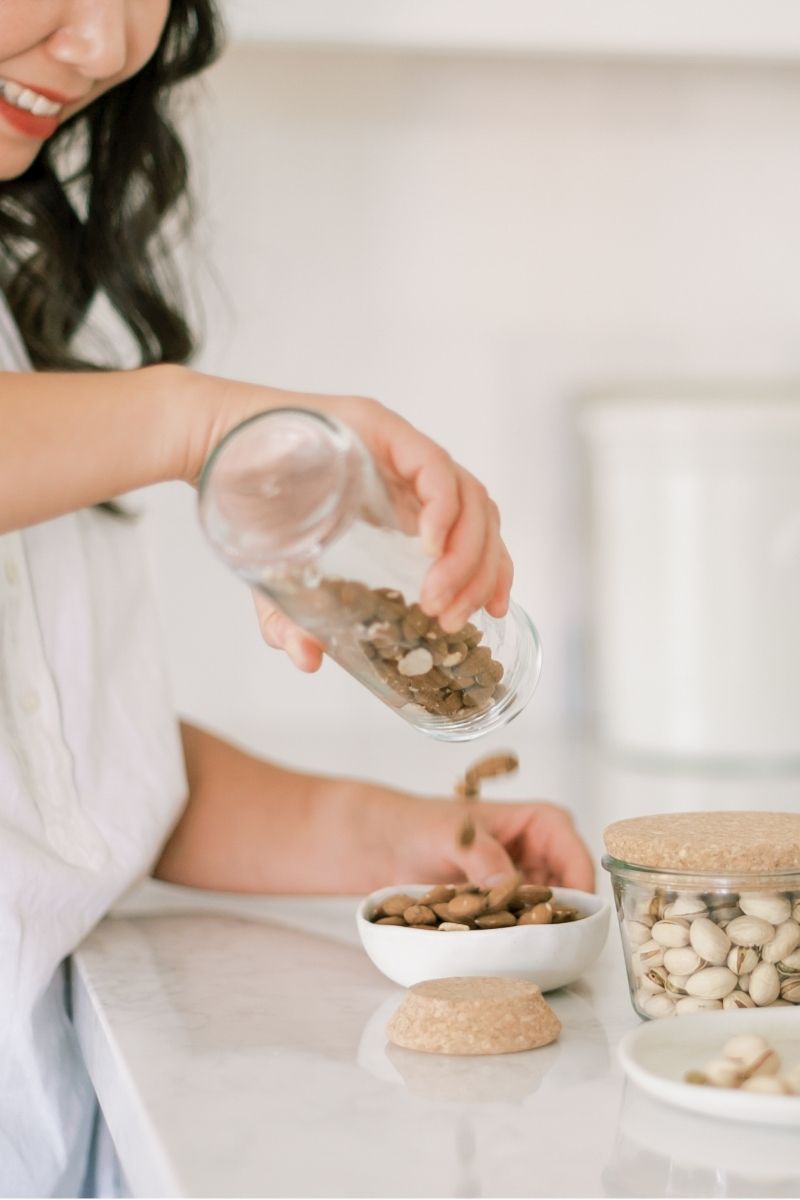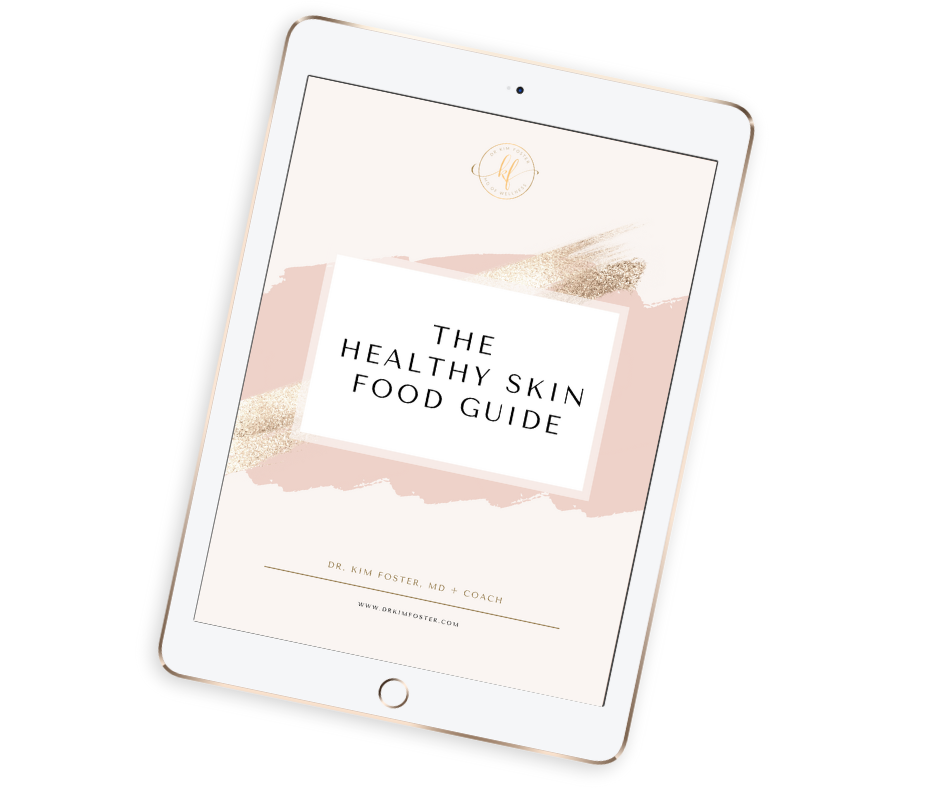Are you frequently dealing with digestive issues like bloat, discomfort, or IBS?
Or do you always feel sluggish after meals and want to know how to create a healthier gut?
The good news is that many gut-related issues can be managed through your diet.
There is much information online about which foods can aggravate our guts. But what are the foods that benefit our digestive systems?
That’s exactly what I’m talking about in this week’s article and YouTube video…
Why Is Gut Health Important?
Scientific research shows that our gut microbiome can affect every organ in our body. So, the condition of our gut can impact everything from our energy levels to our mood.
What’s more, as 70–80% of immune cells are present in our gut, our gut health significantly influences the functioning of our immune system.
So, taking care of your gut doesn’t just reduce symptoms like gas and bloating; it improves our overall health and well-being.
5 Foods To Eat To Improve Your Gut Health
A simple and easy way to improve your gut microbiome is to include plenty of the following foods in your diet:
1. Probiotic Foods
Probiotics are a well-known ‘gut health food,’ but do you know why?
I often refer to probiotics as the superheroes of our guts. Foods containing probiotics introduce beneficial bacteria into our guts and maintain “good” bacteria levels to strengthen our immunity.
While you can take probiotic supplements, several fermented foods are jam-packed with these live cultures, such as:
- Yogurt
- Sauerkraut
- Kimchi
- Kefir
So, a straightforward way to get tons more probiotics in your diet is to eat yogurt for breakfast every morning.
2. Prebiotic Foods
Many people don’t realize that PREbiotics and PRObiotics are two different things, and both are essential for gut health.
While probiotics increase the amount of good bacteria in your gut, prebiotics act as food for that good bacteria. Thus, prebiotics keep your digestive system working at optimum levels.
While prebiotics are sometimes added to foods, there are several natural probiotic sources, including:
- Garlic
- Onions
- Leeks
- Bananas
- Asparagus
These foods contain undigested fiber that nourishes our beneficial gut bacteria. Specifically, they produce short-chain fatty acids known for their anti-inflammatory properties.
3. Omega-3 Rich Foods
Omega-3 has not one, not two, but THREE significant benefits for gut health, making them an absolute must in everyone’s diet.
Firstly, omega-3 is renowned for its anti-inflammatory properties. Omega-3-rich foods reduce inflammation in the gut, which helps to alleviate symptoms of gut-related conditions like inflammatory bowel disease (IBD).
Second, omega-3 contributes to the growth of beneficial bacteria, strengthening our gut microbiome.
Finally, omega-3s act as a robust intestinal barrier to prevent leakage of harmful substances from the gut into the bloodstream. This is another way that they control inflammation in the stomach.
Omega-3 is naturally found in fatty fish as well as some plant-based foods, such as:
- Salmon
- Mackerel
- Sardines
- Chia seeds
- Flaxseeds
- Walnuts
If you’re not much of a fish eater, eat a handful of walnuts daily or sprinkle chia seeds in your oatmeal or smoothies.
4. Spices
This is one of the more surprising foods for gut health. Two spices, in particular, are known for helping to create a calm and pleasant gut environment.
There are Ginger and Turmeric.
Ginger helps to calm your stomach and encourages efficient digestion, ensuring food exits the stomach promptly.
Turmeric protects against inflammation by fortifying the intestinal barrier. Thus, this powerful spice helps to let nutrients in but keeps harmful microbial toxins out.
You can incorporate these gut-healthy spices into your meals in many ways. Dried herbs are very convenient and cost-effective, but I recommend using the fresh stuff whenever possible.
Not only are fresh spices more nutritious, but they have a much more vibrant flavor.
5. Bone Broth
Bone broth is one of the most nutrient-rich foods around, containing essential components like collagen, gelatin, amino acids, and minerals.
Together, these nutrients build a healthy gut lining and support your overall digestive function.
For example, collagen is a protein known for maintaining the integrity of the digestive tract. It helps repair and strengthen the gut lining, creating a healthy barrier against harmful substances.
Meanwhile, gelatin supports the mucosal lining of the digestive tract. It helps to seal the gut lining and prevent the passage of undigested particles into the bloodstream, preventing conditions like leaky gut syndrome.
Finally, amino acids such as glycine and proline support the synthesis of proteins that contribute further to the structure and function of the gut.
To learn more about the gut-nourishing benefits of these five foods, watch the full YouTube video.
Here’s where you can watch:
I’m interested in hearing about any gut concerns you may have.
Are you experiencing frequent digestive issues or battling chronic gut issues? Are there any secret remedies you’ve found?
Let me know in the comments below, or find me on Instagram and send me a DM!
Download my FREE Healthy Skin Food Guide

FREE CLASS!
Looking to take your wellness journey to the next level?
The 3 Secrets For Stepping Into A Meaningful New Career Without Wasting Time Or Money
- find out why health & wellness coaching is a skyrocketing industry that can provide the freedom and fulfillment you’ve been craving
- discover the 3 biggest myths about health & wellness coaching that will hold you back (and what the truth is instead)
- learn the secret sauce for getting amazing results for your clients (and building a profitable business as a wellness coach)
…and more!








